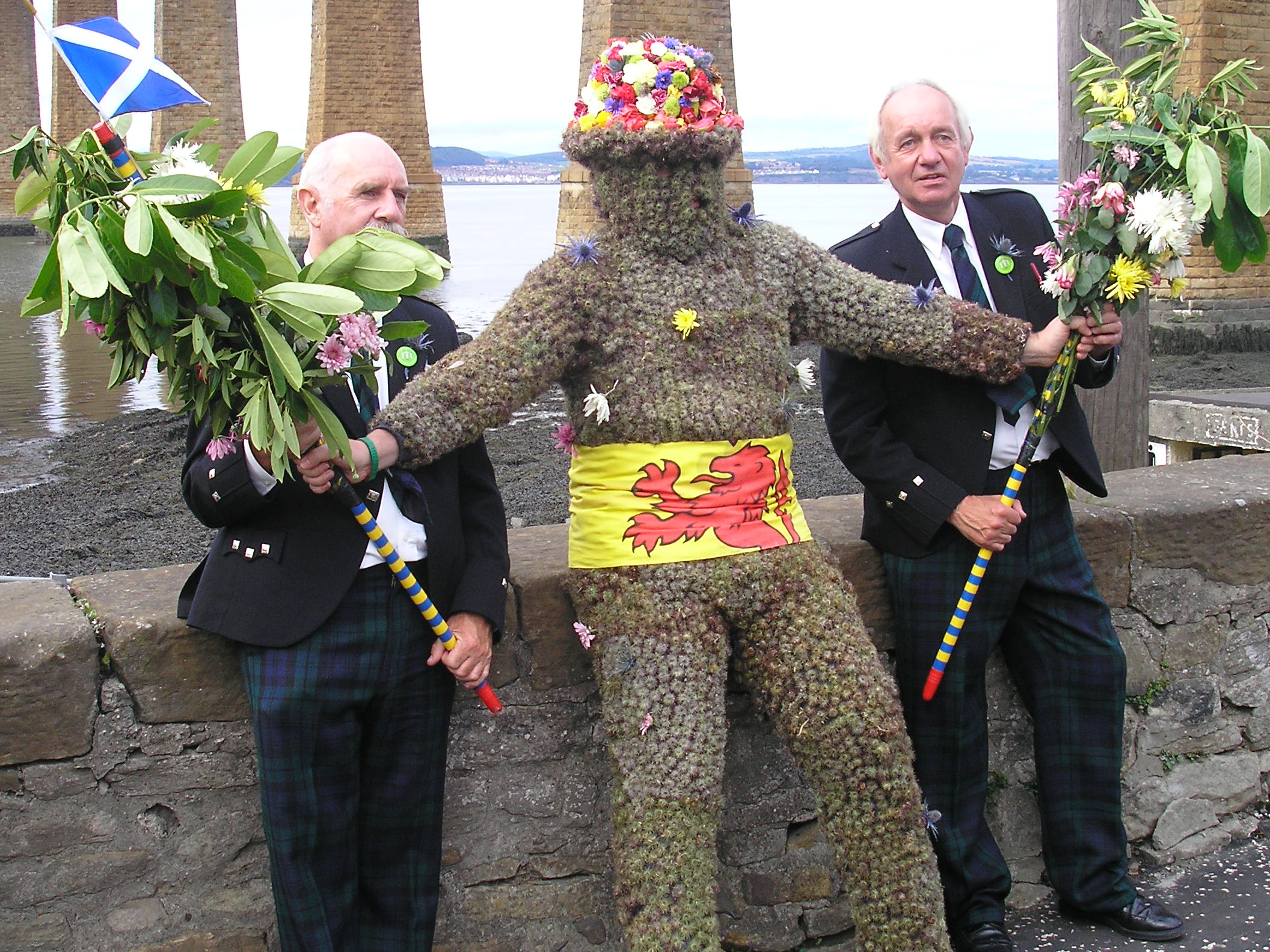Alright, this is it, my last report from the Measures of Support for Intangible
Cultural Heritage conference in Quebec City!
On Sunday morning, the Scots were up bright and early after a night of dancing to Quebecois folk music, ready with
“Intangible Cultural Heritage in Scotland: developing appropriate methodologies” presented by Alison McCleery,
Edinburgh Napier University (ENU), and Joanne Orr,
Museum Galleries Scotland (MGS) (
twitter.com/JoanneMGS).
Orr, who isn’t half bad at a fast polka, by the way, started off by explaining how MGS represents over 350 museums and galleries in Scotland. 50% of the workforce are volunteers (which will sound familiar to the museum community in Newfoundland and Labrador). The sector contributes over 800 million pounds in value to the Scottish economy. The members are widespread geographically, and many serve as cultural hubs for their communities, a theme which was repeated in the presentation.
McCleery gave a history of their ICH work. A research team from ENU was commissioned to
scope ICH activities in Scotland, map support mechanisms in place to safeguard ICH, review, evaluate and make recommendations. They decided that an inclusive definition of ICH should be used in terms of level of participation, diffusion and ethnicity (
i.e. ICH
in Scotland, rather than Scottish ICH). The study noted that recording ICH is an inventory is the first step towards ensuring that ICH is safeguarded, and that safeguarding of ICH should take the form of supporting education channels and community groups.
In Scotland, the emphasis has been on living practices, representations, expressions, knowledge and skills, that communities, groups and individuals themselves recognize as part of their own ICH. Ideal approaches to safeguarding should be community centred and owned, unforced, uncontrived, and authentic. McCleery, admirably, also made the point that celebrating diversity promotes social cohesion.
Scotland is developing a very open inventory, that anyone can contribute to, which is in an easily edited wiki format:
www.ichscotlandwiki.org. McCleery gave the
Heart of Midlothian as an example of a cultural space and practise that is recorded on the inventory.
Orr presented on a few projects that member organizations have undertaken with an ICH focus. One was a knitted fish project, where traditional knitting techniques were used to knit fabric fish which including local sayings. The project has resulted in regular groups meeting to knit, which has moved the tradition forward in terms of subject matter.
Another project was conducted by a local fisheries museum – a boatbuilding project which included rowing clubs that compete against each other. In this way, skills are maintained, and the tradition moved forward to fit people’s lives today, and to involve people who never would have considered themselves part of the tradition.
Orr argued that the local memory of family and village histories is the heart of community collections. There is a strong wish in villages to hold on to traditions, a sentiment that certainly, again, sounds familiar here in Newfoundland and Labrador.
McCleery noted that ICH in Scotland faces two problems. There is what she called the “authenticy/ownership challenge” - for whose benefit is cultural tourism? Should it be outward facing for tourists, or inward facing for locals? She also noted a generational mismatch challenge – older people have knowledge of ICH, while the younger generation has technology and virtual knowledge to share it, but not the interest the material. She argued that we must find a compromise between doing nothing and doing something, and that we need to find a way to bridge gap. She suggested that education in schools is one important approach to this question.
Orr then described an online “
Remembering Scotland at War” project, which contains curated exhibitions by museums in one part, and user generated content in another part. People can post their own material, which can then be moved into the curated section.
“When people engage and share their knowledge, we are richer,” Orr said.
Orr also argued that we need to combine the tangible and intangible, with less focus on materiality, and more on meaning. Museums can be cultural meeting places, where the process of ICH can be witnessed daily. She referenced the
Festival of Museums, which encourages museums to share tangible and intangible in creative ways.
You can check out one example, a
fishtastic festival. Other museums developed projects around basket weaving and peat cutting.
“ICH is dynamic, about living processes,” said Orr. “We’ve got to move the perception of heritage to something that is dynamic.” Right on!
Overall, ICH is alive and well in Scotland, embedded at community level. People are comfortable with the concept of ICH, and ICH benefits from the gentle support of the museums network. Inspiring work, Scotland!






